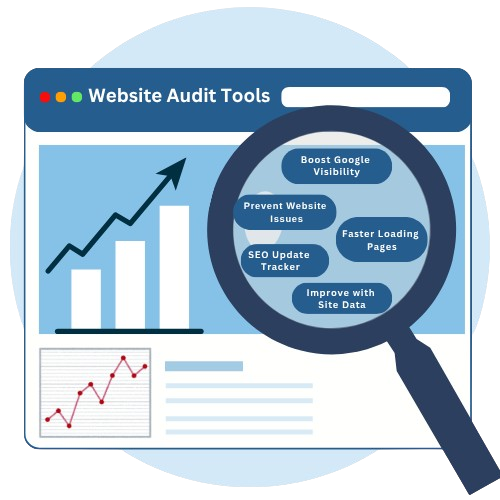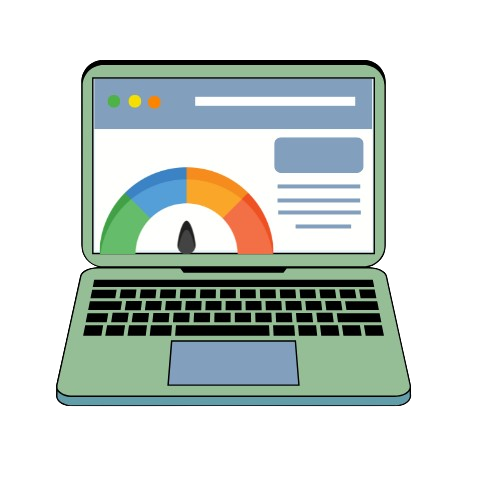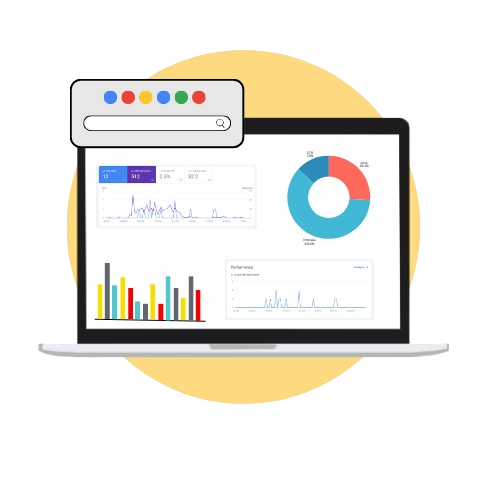Website Audit Tools Digital Marketer Should Know | Free and Paid Audit Tools
In the fast-changing world of digital marketing, having a strong online presence is non-negotiable. Whether you’re managing your own brand or handling client websites, regular audits are essential to stay ahead. Website audit tools play a vital role in helping digital marketers understand site performance, uncover SEO issues, and improve user experience. From fixing technical glitches to enhancing content strategy, these tools offer valuable insights for better decision-making. In this blog, we’ll explore the uses and benefits of website audit tools, compare free and paid options, and answer a key question: what’s the difference between SEO audit tools and full website audit tools? By the end, you’ll have a clear understanding of which tools suit your needs best and why every digital marketer should use them.

Website Audit
A comprehensive Website Audit constitutes a systematic evaluation and thorough assessment of all elements that influence a digital platform’s operational efficiency, search engine visibility, and user interface optimization. This analytical process facilitates the identification of critical impediments that may compromise your website’s search engine rankings and impede the conversion of prospective clientele into established customers. Through meticulous examination of various performance metrics and technical parameters, the audit serves as an instrumental diagnostic tool for enhancing digital marketing effectiveness and maximizing return on investment.

Benefits of Using Website Audit Tools
- Boost your website’s visibility in Google search results
- Find and fix website problems early
- Make your pages load faster
- Check if your site works well on phones
- Make your site easier to use
- Keep up with search engine updates
- Use real data to make your site better
Uses of Website Audit Tools
Website audit tools check your website for problems. These tools look for mistakes, technical issues, and ways to improve your search rankings. They create reports that help you understand what needs fixing. This makes it easier to make your website better and more visible online.

Many technical SEO problems are overlooked, yet they can greatly affect how well your site performs in search engine rankings. While your content might be strong, problems behind the scenes can prevent your site from being properly indexed or ranked. That’s why spotting and fixing technical issues is a critical part of website maintenance.
- Broken links (404 errors)
- Redirect issues
- Crawl errors
- Duplicate pages
- Sitemap and robots.txt problems
On-page SEO means making web pages better for search engines. It helps pages show up higher in search results and get more visitors. This involves improving the page’s content and code to make it easier for both search engines and users to understand.
- Title tags and meta descriptions
- Header structure (H1, H2, H3)
- Keyword usage and placement
- Internal linking
- Alt text for images
Site speed and performance are essential for keeping visitors engaged and securing strong rankings on Google. A slow website can damage both.That’s why regularly measuring site speed and performance is essential for any business or content creator with an online presence.
- Load time on desktop and mobile
- Image optimization
- JavaScript and CSS issues
- Core Web Vitals (LCP, FID, CLS)
User Experience (UX) refers to the overall impression and satisfaction users have while navigating your website. A positive experience keeps users engaged, encourages them to return, and increases the likelihood that they’ll complete your desired action—whether that’s signing up, buying, or sharing. A poor experience, on the other hand, leads to frustration, high bounce rates, and lost opportunities.
- Confusing navigation
- Poor layout structure
- Slow-loading pages
- Accessibility issues (like missing alt text or improper contrast)
In today’s digital landscape, website security isn’t optional- it’s essential. A secure site not only protects your data but also builds trust with visitors and search engines. Website audit tools play a crucial role in identifying vulnerabilities and helping you keep your site safe from threats.
- Identify Security Weaknesses
- Check HTTPS Implementation
- Expired SSL certificates
- Mixed content warnings
- Vulnerable plugins or scripts
- Verify Secure User Access
Tracking your website’s progress is key to understanding what’s working, what needs improvement, and how your efforts are impacting performance over time. Website audit tools play an important role in measuring results and keeping your strategy on the right path.
- Monitor SEO Improvements
- Track Site Health Over Time
- Help prioritize tasks
- Support team collaboration
Free Website Audit Tools
Free tools work well if you’re just starting out or have a small business. They also help when you want quick answers without spending money.
Google PageSpeed Insights
Google PageSpeed Insights is a complimentary service that assesses how quickly and efficiently your website loads on both mobile and desktop platforms. It provides detailed feedback and practical suggestions to help you make your site faster and more user-friendly.
Key Features
- Core Web Vitals evaluation
- Optimization tips for images, scripts, and CSS
- Mobile vs. desktop comparison


Google Search Console
Google Search Console is a free tool that allows website owners to assess and enhance their site’s visibility in Google search results. It gives you direct insights into how your website is performing in search and flags any issues that could affect visibility.
Key Features
- Monitor search traffic
- Check for crawl errors
- Submit sitemaps and page removals
- Mobile usability reports
GTmetrix
GTmetrix is a free website performance testing tool that helps you analyze how fast your web pages load and what’s slowing them down. It combines performance scores with detailed reports, making it easy to identify and fix speed-related issues.
Key Features
- Page speed analysis
- Waterfall chart of loading elements
- Suggestions to improve performance


Ahrefs Webmaster Tools (Free Version)
Ahrefs Webmaster Tools is a free SEO toolset offered by Ahrefs, designed to help website owners monitor and improve their site’s search performance. It provides in-depth insights into your website’s technical health, backlinks, and keyword visibility.
Key Features
- Site health overview
- Broken link detection
- Keyword performance tracking
- Technical SEO recommendations
SEOptimer
SEOptimer is an easy-to-use, no-cost website auditing tool that rapidly assesses your site and delivers a clear, actionable SEO report. It’s especially useful for beginners, marketers, and small business owners who want to understand how their website is performing without getting overwhelmed by complex data.
Key Features
- SEO, usability, performance scores
- Social media analysis
- Clear improvement tips


SSL Labs by Qualys
SSL Labs is a free tool from Qualys that lets you analyze how your website is set up with SSL/TLS. It checks how well your site handles secure connections and identifies any weaknesses in your encryption setup.
Key Features
- SSL configuration analysis
- Encryption strength
- Grade system (A to F)
Mobile-Friendly Test (Google)
Google has a free tool that checks if your website works well on phones and tablets. Many people use their phones to go online, so your website needs to be easy to use on small screens. This is useful for visitors and makes your site more prominent in search results.
Key Features
- Detects text sizing issues
- Checks tap target spacing
- Flags horizontal scrolling

Paid Website Audit Tools
Paid SEO tools do more than basic checks. They give detailed reports and special features for marketing and website teams. These tools can handle big websites and complex tasks.

Semrush Site Audit
The Semrush Site Audit tool reviews your website for any SEO problems. It helps find issues that could stop your site from showing up well in search results. Many marketing experts use this tool as part of the Semrush package.

Ahrefs Site Audit
Ahrefs Site Audit is a fantastic tool that assists you in identifying and correcting technical SEO issues throughout your website. It performs a full crawl of your site to identify problems that may affect search engine visibility and user experience.

Screaming Frog
Screaming Frog SEO Spider is a downloadable desktop application that helps you perform detailed technical audits of your website. Many SEO specialists rely on it to quickly detect on-site issues that can impact how well a site performs in search engines.

Site
bulb
Sitebulb is a powerful desktop tool used for conducting in-depth website audits with a strong focus on clear visuals and actionable insights. It’s built for SEO professionals and digital marketers who want a deeper understanding of how their site performs from a technical perspective.

Moz
Pro
iMoz Pro serves as a complete SEO solution that aids businesses in boosting their visibility on search engines via research, monitoring, and optimization tools. With its user-friendly design, Moz Pro is great for both beginners and experienced marketers alike.
Who Should Use Website Audit Tools?
Website audit tools are valuable for anyone responsible for maintaining, improving, or growing a website. They help identify problems, improve performance, and enhance visibility in search engines.
Marketers use audit tools to ensure their website aligns with SEO best practices, loads quickly, and provides a good user experience—all of which affect traffic and conversions.
SEO experts rely on these tools to uncover technical issues, track keyword performance, and optimize content for better rankings in search engines.
Developers benefit from audits that detect broken links, slow-loading scripts, or mobile responsiveness issues, helping them maintain a healthy site structure.
Whether it’s a small business or an e-commerce brand, owners can use these tools to monitor site performance, security, and growth opportunities without needing deep technical knowledge.
Writers and bloggers can optimize their articles by using audit tools that suggest improvements in keyword usage, readability, and meta data.
Digital agencies and SEO consultants use audits to deliver insights and reports to clients, track progress, and guide long-term strategy.

What's the difference between SEO Audit Tools and Website Audit Tools?
When it comes to improving your website, both SEO audit tools and website audit tools are incredibly valuable but they serve different purposes. Knowing the difference between the two can help you choose the right tools to boost your online presence effectively.
SEO Audit Tools
SEO audit tools are built to analyze how well your website is optimized for search engines. Their primary goal is to help you improve your rankings on platforms like Google, Bing, and Yahoo.
Key Features
- Keyword usage and placement
- Meta titles and descriptions
- Internal linking structure
- Backlink profile
- Mobile-friendliness and page speed (as they impact SEO)
- Indexing and crawlability
- Duplicate content and thin pages
Popular Tools
- Semrush
- Ahrefs
- Moz Pro
- Ubersuggest


Website Audit Tools
Website audit tools take a more comprehensive look at your entire site not just for SEO, but also for performance, user experience, and technical health.
Key Features
- Site speed and load time
- Broken links and redirect chains
- Mobile responsiveness
- Security issues (SSL, HTTPS)
- Server errors and crawl issues
- Code structure and page hierarchy
- Accessibility and usability
Popular Tools
- GTmetrix
- Google PageSpeed Insights
- Screaming Frog SEO Spider
- Sitebulb
- SSL Labs by Qualys
Conclusion
Website audit tools play a vital role in maintaining a healthy, high-performing, and search-optimized website. They help uncover hidden issues, improve technical performance, and ensure your site delivers a smooth and secure user experience. Whether you’re focused on SEO, page speed, mobile responsiveness, or security, these tools provide the insights needed to make informed improvements. By regularly auditing your website, you can stay ahead of potential problems, boost visibility in search engines, and create a better experience for your visitors. In a digital world where every second counts, using website audit tools is not just smart—it’s essential for long-term success.
